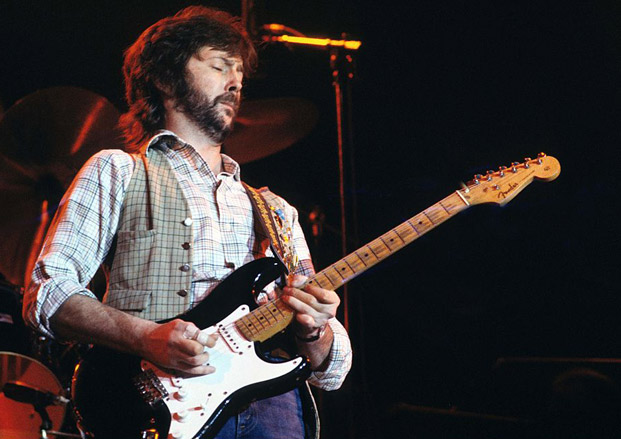In 1991, rock legend Eric Clapton faced an unimaginable tragedy when his 4-year-old son, Conor, fell to his death from the 53rd floor of a New York skyscraper. The incident left Clapton shattered, questioning not just his future as a musician but also his will to carry on. For many, it marked one of the darkest chapters in the history of rock music.

But out of that grief came something deeply unexpected—a song that would touch millions around the world. “Tears in Heaven” was not written to be a hit single or a commercial success. Instead, it was Clapton’s private way of reaching out to his son, a personal dialogue put into melody.
Clapton later admitted that the lyrics were a direct conversation with Conor, asking questions he knew he would never get answers to. Lines such as “Would it be the same, if I saw you in heaven?” came from a place of longing, pain, and love. This was not just music; it was mourning turned into art.

When Clapton debuted the song, listeners immediately felt its raw emotion. It transcended language and culture, resonating with anyone who had ever experienced loss. The song became a universal anthem for grief, reminding people they were not alone in their sorrow.
Critics praised the track for its simplicity—just Clapton’s voice, acoustic guitar, and unfiltered honesty. Unlike many polished rock ballads of its time, “Tears in Heaven” stripped away everything unnecessary. What remained was the pure essence of a father’s heartbreak.
The song went on to win three Grammy Awards, including Record of the Year and Song of the Year. But for Clapton, the accolades were secondary. What mattered most was that he had found a way to keep Conor’s memory alive through music.
Over the years, Clapton has performed the song countless times, each rendition carrying the same weight as the first. Audiences often describe feeling a hush fall over the crowd, as if everyone collectively shares the pain with him. In those moments, the boundaries between artist and listener dissolve.

Today, “Tears in Heaven” remains one of the most powerful songs ever written about loss. It proves that even in the deepest pain, art can create connection and healing. For Clapton, the song will forever be a bridge to his son—a conversation across eternity.